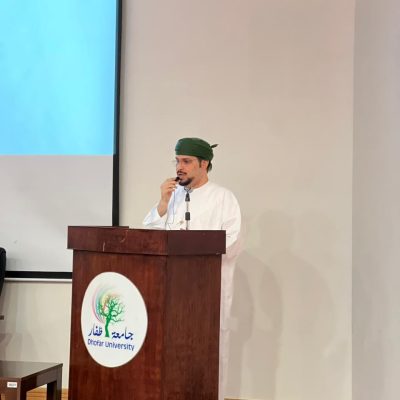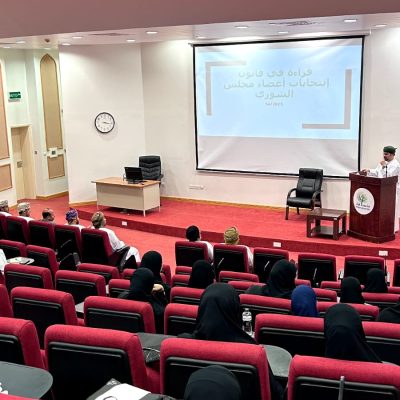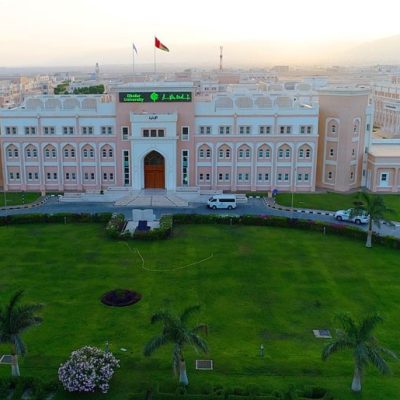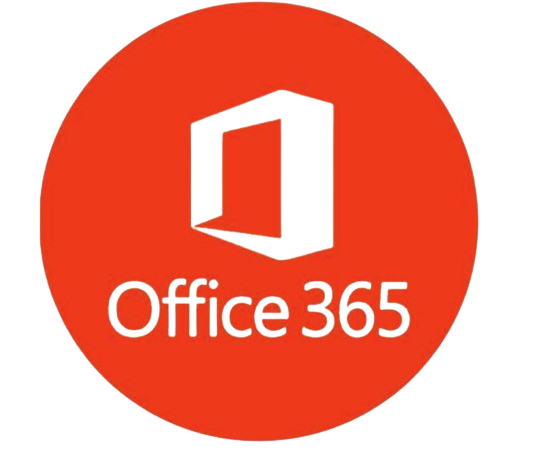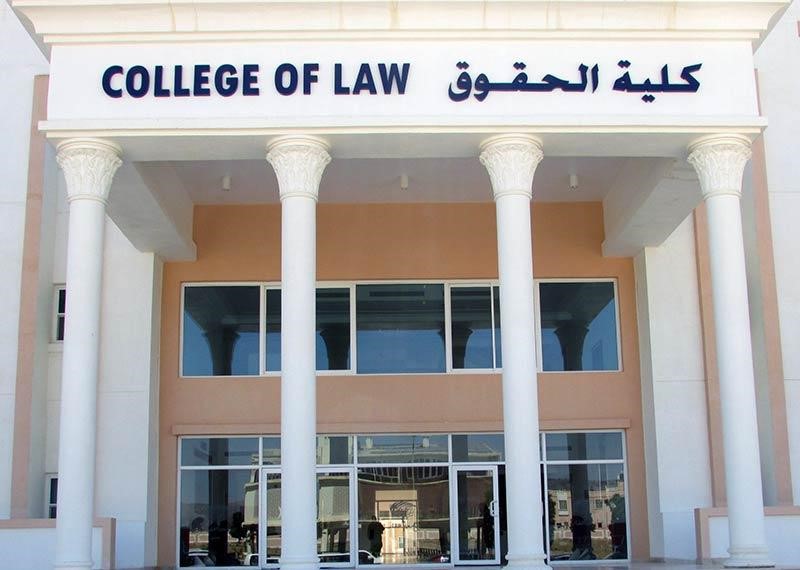
With the start of the Shura Council elections, Dhofar University presented a symposium on the law of elections for members of the Shura Council
The College of Law at Dhofar University recently organized a symposium as part of its responsibility to promote legal culture and awareness of constitutional rights. The symposium, organized by Industry Community Engagement Committee at the College, shed light on the “Law on the Election of Members of the Shura Council.” Mahmood Ali AL Maashani, a lecturer in constitutional law, explained the historical development of parliamentary experience in Arab-Islamic and Western civilizations, including the Greek and Roman councils, the Council of the Kingdom of Leon in 1188, and the English Parliament in 1236. He then discussed the Omani parliamentary experience, particularly its historical development, represented by the municipal councils (Al-Sabla and Al-Hujra), and how it evolved into the modern councils of the Consultative Assembly and the Shura Council.
The lecturer pointed out that there are preparatory procedures preceding the elections and the voting stage, which are the responsibility of four entities involved in the electoral process: the Ministry of Interior, the Supreme Election Committee, which supervises the election of Shura Council members and handles election appeals, the main election committee responsible for preparation, organization, and coordination of the elections, and the election committee, which includes voting, sorting, and technical verification subcommittees.
The lecturer affirmed that the Law on the Election of Members of the Shura Council defines the body of voters, and a voter is defined as any citizen whose name is listed in the electoral register (a register established by the Ministry of Interior that includes the names and electoral information of voters) and has the right to vote. The law provides several forms of voting that represent the fundamental principles of elections, including personal voting, electronic voting, secret voting, and equal voting rights. There are also certain conditions that a voter must meet to be registered in the electoral register, including Omani citizenship (both original and acquired), being at least 21 years old at the time of the election, not being affiliated with security or military entities, and being mentally competent.
The lecturer explained the process of becoming a member of the Shura Council, which involves submitting an application, acceptance of candidacy, inclusion of the candidate’s name in the electoral register, and electoral appeals, according to the conditions of original citizenship and educational qualification (General Education Diploma). A person with a final criminal conviction, whether related to a crime against honor and integrity or resulting in deprivation of civil rights, is not eligible unless their rights have been restored.
The symposium also discussed election campaigns and the available means of campaigning according to the law and the decision of the Minister of Interior in coordination with relevant authorities. These means include the official website of the Ministry of Interior, which provides a dedicated digital space for election campaigns, as well as advertising posters and social media applications. The lecturer emphasized the principles governing election campaigns, such as fairness, the neutrality of the electoral authority, the validity of the campaign methods used, and respect for the specified time frame. The voting stage is carried out through the “Intikhab” (Vote) application within a minimum period of 8 hours, with the possibility of extension by the Supreme Election Committee, provided that it does not exceed 4 hours, as required by the electoral process.
The symposium concluded with a discussion of the sorting and announcement of results. The Ministry of Interior is allowed to announce preliminary indicators of election results during the electoral process. The sorting and announcement of results involve reviewing the number of votes through the sorting committee, referring the results to the main election committee, and then the Minister of Interior issuing a statement with the names of the Shura Council members according to the final results approved by the Supreme Election Committee, which are published in the Official Gazette.
After this stage, there is a period for appeals against the results for any interested candidate. The appeal is submitted to the Supreme Election Committee within 10 days from the date of the Minister of Interior’s statement, along with a request form stating the reasons and supporting documents. The Supreme Election Committee decides on the election appeals within 15 days from the end of the official appeal period, and its decision is considered final.
